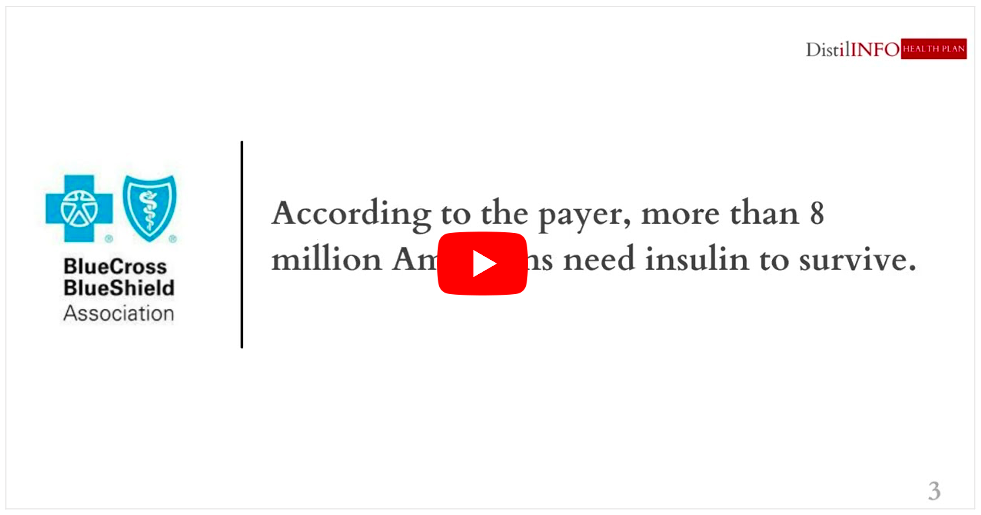
The Blue Cross Blue Shield Association (BCBSA) has partnered with a nonprofit generic drug company to help increase access to low-cost insulin for members living with diabetes.
Along with several other Blue Cross Blue Shield (BCBS) companies, the payer is collaborating with Civica to manufacture and distribute insulin biosimilars.

“This is an important milestone in our continued partnership with Civica as we advance our shared goal of bringing lower-cost prescription medication directly to consumers,” Kim Keck, president and chief executive officer of BCBSA, stated in the press release.
“Access to affordable insulin can be the difference between life and death for diabetics—and we’re proud to be a part of Civica’s effort to ensure that millions of Americans have access to the medicine they need at a price they can afford. When we come together, we can make healthcare more affordable.”
According to the payer, more than 8 million Americans need insulin to survive. However, one in four users reported skipping doses or taking less than their prescribed amount because of the medicine’s high cost. This can result in patients developing health conditions that they could have avoided if no financial barrier limited insulin access.
Through the partnership, BCBSA and BCBS companies will support Civica as it manufactures and distributes glargine, lispro, and aspart — three biosimilar insulins of brand-name drugs Lantus, Humalog, and Novolog.
The company plans to sell vials of the drugs at no more than $30 each and boxes of five pre-filled pens for no more than $55 each. According to Civica, the prices reflect the development, production, and distribution costs and are well below what uninsured individuals currently pay for insulin.
“By increasing the availability of more affordable generic insulin, we are making clear our commitment to helping our diabetic members obtain the life-saving medicines they depend on to achieve their best health,” Gary D. St. Hilaire, chief executive officer of Horizon Blue Cross Blue Shield of New Jersey, said in the press release.
“As health solutions leaders, we are driving new partnerships and innovations that make healthcare better and more affordable not just for our own members, but for everyone.”
Depending on FDA approval, the company expects to have the insulin biosimilars available to consumers by 2024.
This is not the first time BCBSA and its independent payers have worked with Civica to help reduce the cost of medications.
In January 2020, 18 BCBS companies partnered with Civica to form the subsidiary CivicaScript, aiming to lower the prices of specific high-cost generic prescriptions. The subsidiary plans to develop and manufacture generic medications that do not have enough market competition to reduce costs.
As insulin prices continue to rise, payers have attempted to lower costs for members over the last few years.
For example, in 2019, Blue Cross and Blue Shield of Minnesota announced it would offer commercial, fully insured members a zero-dollar insulin copay. The payer planned to implement the benefit in 2020, which would have no impact on monthly premiums.
In May 2020, a handful of Medicare Advantage and Medicare Part D plans announced that they would participate in the Part D Senior Savings Model to lower insulin prices for 2021. Under the model, plans must offer members one month of insulin supplies for a maximum copay of $35.
Payers have also taken different routes to help address the diabetes epidemic and improve chronic disease management.
CareFirst BlueCross BlueShield recently awarded $1.76 million in grants to local health organizations that focus on addressing social determinants of health that can lead to individuals developing diabetes.
Other payers, like Humana, have turned to technology. In November 2021, the payer partnered with a type 2 diabetes reversal vendor and used remote patient monitoring to help members manage their type 2 diabetes.
Source: HealthPayer Intelligence

